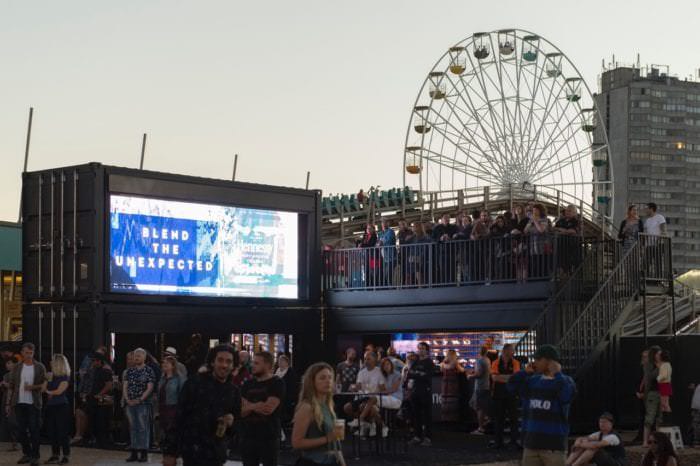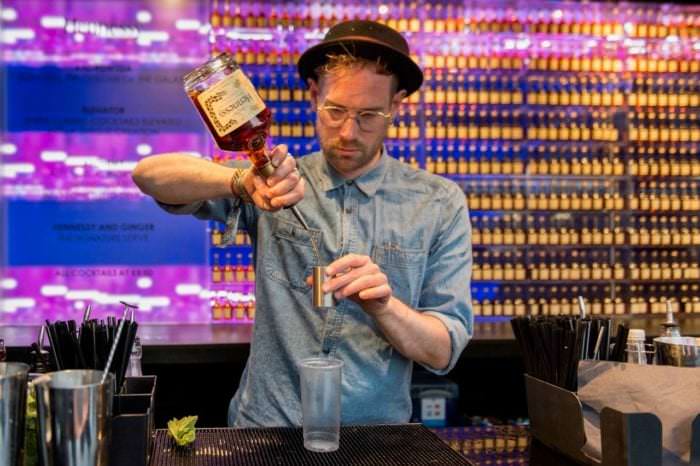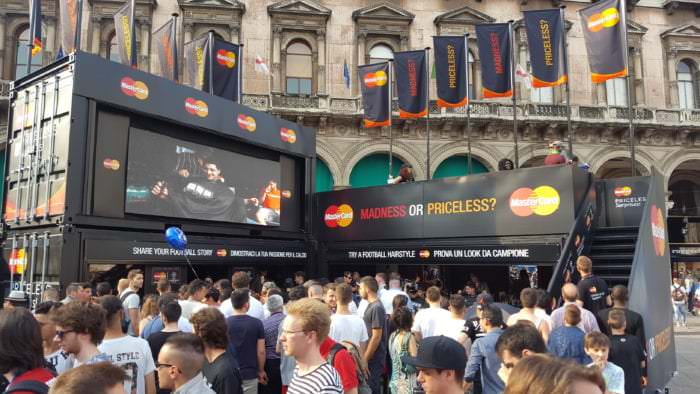How to plan, market and execute an event around communication
Communication is at the heart of everything we do, enabling us to form relationships, carry out work and achieve our goals. It is also at the heart of successful event marketing.
Whether speaking in front of an audience, conducting a product demonstration or simply networking, being able to communicate your brand successfully is essential. All event marketing relies on effective communication from the initial event development, marketing and promotions phases, through to the actual event itself.
To plan a successful event, organizers need to listen to their audiences, understand their needs and plan an event that envisions these desires. Only by effective communication from the organizer can marketers communicate the right messaging and marketing promotions to attract the intended audiences.
On top of this, brand representatives need to be able to deliver an insightful and memorable event that communicates the brand successfully. Visitors will then communicate their event experience – good or bad – with their network both online and offline.

The benefits of communication in event marketing
From beginning to end, effective communication determines the success of an event and at the end of a successful event marketing campaign, organizers should expect to see an increase in:
- Sales
- Leads
- Brand awareness
- Brand affinity
- Established relationships
- Credibility
1. Sales
Whether your brand is B2B or B2C, event marketing is a great opportunity to establish relationships. Building relationships directly impacts your conversion rate as customers can ask questions about your products or services there and then.
Only by ensuring your brand representatives are empowered and knowledgeable enough to convey your brand effectively, do you have the best chance of closing deals. Measuring sales is an easy way to track ROI on the event.
2. Leads
A study by the Exhibit and Event Marketers Association and the CMO Council found that 64% of marketers used events for new prospects and business opportunities, and 63% used them for lead sourcing.
If a prospect doesn’t convert during the event, there’s still an opportunity to add them to your marketing database. As they’ve shown recent interest in your brand, the lead is hot and can be effectively nurtured through the sales process, which is particularly true for B2B marketers.
There are several ways to get a prospect’s details. Just ensure you’re following regulations when collecting data.
3. Brand awareness

Hennessy handing out samples during a recent pop-up event.
Event marketing is perfect for getting customers and prospects to notice you. Hosting an activity, whether fun or educational, that promotes your brand is a great way to get people to interact with it. For example, a drinks company may participate in a Summer festival, handing out samples to get customers to discover their new menu.
Awareness can grow outside of the event through the power of social media. Attendees may share a picture of your company to their profile and tag your company, generating brand exposure. Measuring PR and social media coverage is a good way to measure the success of the event.
4. Brand affinity
By exceeding expectations and creating an unforgettable experience, attendees and prospects will remember your brand. By delivering happy memories, people will be eager to interact with your brand and relive that excitement.
Customer Thermometer polled 1,000 Americans regarding brand loyalty emotions and found that the top emotions feel when connected to a brand is an interest in it, as well as trust and optimism.
By communicating your brand effectively and sharing value, knowledge and inspiration, you will create interest, trust and optimism within prospects and customers.
5. Established relationships
As Seth Godin, author, marketer, and entrepreneur, once said: “People do not buy good and services. They buy relations, stories and magic.”
As event marketing relies on face-to-face communication, this is the place to begin building relations, tell stories and create magic. Connecting with your audience is the formation of building relationships. Customers are more likely to choose a company that they’ve made a connection with.
6. Credibility
If you’re speaking at an event, as an influencer, you’ll display your thought leadership to your audience, demonstrating you’re at the forefront of your industry.
However, this same principle can be applied when participating in an event by sharing insight and value with your customers and prospects. Credibility has a positive reflection on your brand as prospects want to work with brands they can trust.
Planning event marketing around communication
To plan event marketing successfully around communication, communication must be at the forefront of each stage of the event, from beginning to end:
- Planning
- Marketing
- Interactions
- Social media
- Follow-ups
1. Planning
Event organizers must understand their audiences and their needs. Only by truly understanding what their audience requires in event marketing, can the organizer begin planning an event. The organizer must translate this understanding to their team through an event communication plan.
An event communication plan outlines the vision of the event marketing, as well as expectations, constraints and deadlines of employees. Without a plan and effective management, your event could fall apart.
2. Marketing
It’s essential your event marketing maintains a strong brand identity. A strong identity makes your company look bigger and shows you’re legitimate helping to build trust and loyalty.
It is vital that your brand identity extends beyond the look and feel of your website and is communicated through the right messaging, marketing promotions and conversations.
3. Interactions
How do you want people to feel when they see your brand? Your event marketing should convey this emotion through positive face-to-face interactions. Learn about your customer’s pain points and start conversations.
Never push your product or service. Hard selling tactics are invasive and off-putting, especially in face-to-face scenarios. Soft selling that puts emphasis on the customer rather than the product is the basis for making long-term relationships.
4. Social Media
Today’s digital world has changed communication, going beyond being a good orator and processing good ‘social skills’ to delivering an experience that can be communicated online and offline.
EventTrack performed a study in 2015 showing that 72% of consumers say they positively view brands that provide great experiences. Sharing these instances online through social media allows more consumers a chance to positively view your brand.

Mastercard utilizing a shipping container during UEFA Champions League promotions in Milan.
Through creative means, experimental marketing allows brands to connect with people in the real world. Delivering real-life engagement, interactions and experiences to start conversations around your brand online and offline.
In today’s world, it’s important to make your event enticing so that people want to capture share the moment through their social channels to their network. This generates awareness of your brand to those who are not attending the event.
5. Follow-up
Whether through a phone call, email or social media, it’s important to follow-up with prospects and leads after the event occurred. People live busy lives and touching base may be the trigger they need to stimulate a sale.
Communicating to attendees after the event can also provide invaluable feedback for future marketing events as you understand more about the pain points and needs of your audiences.
Conclusion
For increased sales, leads and relationships, as well as heightened brand awareness, affinity and credibility at event marketing, it is essential that communication is at the forefront of your strategy from beginning to end.
Organizers, marketers, ambassadors and staff must understand the importance of effective communication and place it at the heart of event marketing.
